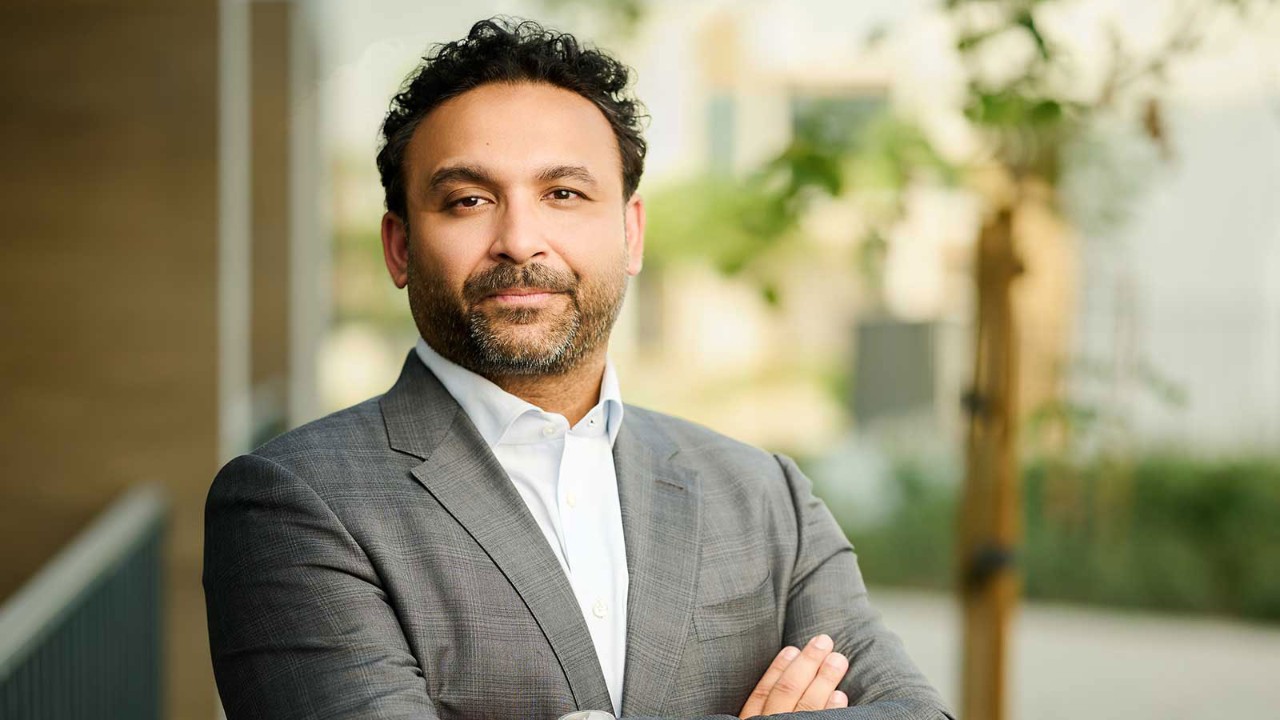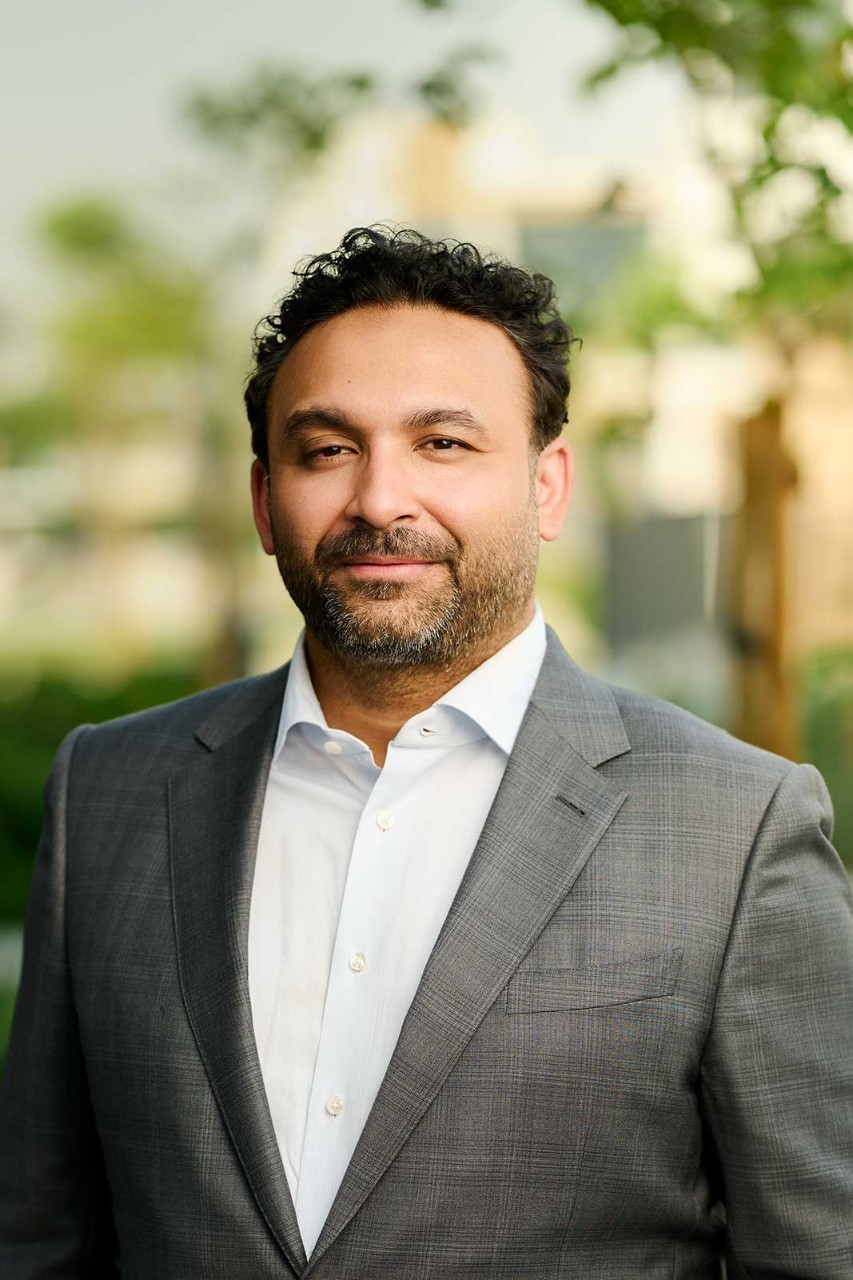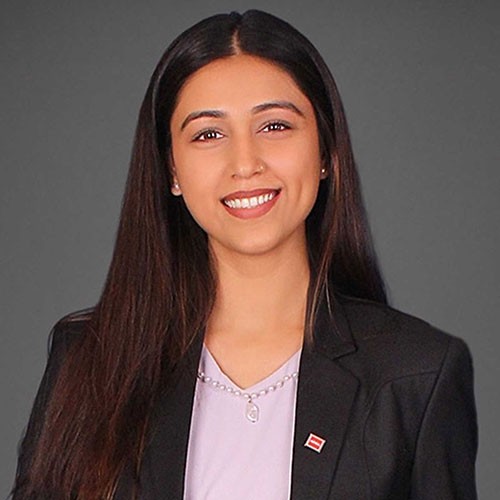
For a man who once worked in Burger King, Syed Kashif K Haqqi FCCA has come a long way. In the years since, he has qualified with two global accountancy bodies, immersed himself in the healthcare sector, provided the financial planning for a major new cancer centre in London opened by the late Queen, worked in private equity, and was until recently at the heart of Saudi Arabia’s effort to completely restructure its health service.
Now advising businesses on three continents, he is also pursuing a PhD in Institutional Mechanisms and Market Dynamics in Healthcare Social Welfare Optimisation at the UK’s Anglia Ruskin University in Cambridge, so it’s probably safe to say the healthcare sector hasn’t seen the last of him yet.
‘The need for good, strong people has never been greater’

Through his work, he has consistently striven to demonstrate the value of sound financials to health service outcomes. Finance has a ‘huge role to play’ in healthcare, he stresses, ‘making sure resources are available and that you can keep the lights on’. And, he adds emphatically: ‘The need for good, strong people has never been greater to make these things work.’
Healthcare is personal for Haqqi and he speaks about it passionately. He has lived through the tragic loss of both his first wife and his father to cancer. These devastating, formative events gave Haqqi first-hand experience of healthcare, not just as part of its administration but as someone close to patients going through the most difficult of times.
‘I think maybe I have an advantage over a lot of other finance professionals in healthcare because in my journey, the situation with my wife and father gave me more insight,’ he reflects.
Faith and experience
The work hasn’t always been easy. Eighty-hour weeks and clinicians declaring his finance decisions could cost lives have given him more than his share of sleepless nights. But he believes that faith and his personal experience of healthcare systems have made a profound difference to his professional outlook. ‘That gave me more strength, more confidence in my ability to judge pros and cons,’ he says.
Of Indian and Pakistani heritage and the eldest of 11 children, Haqqi grew up in Saudi Arabia, where money was tight for the family. He moved to London age 19, where he finished his education, supporting himself by flipping burgers and working the help desk at Emile Woolf, the college where he studied.
CV
2025
Business adviser and research fellow
2024
Senior adviser, The National Centre for Performance Measurement, Ministry of Health, Riyadh, Saudi Arabia
2017
Senior adviser, Payer and Provider Finance Corporatization, then senior adviser, Regulatory Finance Corporatization (reporting to Deputy Minister), Ministry of Health, Riyadh
2015
CFO, Aspen Healthcare, London, then CFO, Fakeeh.care, Jeddah, Saudi Arabia
2009
Operating partner, Risk Capital Partners, London
2002
Financial planning manager, The London Clinic, London, UK
After roles in audit, at a healthcare provider and in private equity, he became CFO first at Aspen Healthcare, also in London, and then at Fakeeh Care, a pioneer provider based in Jeddah, Saudi Arabia, which was looking to grow in the wider Gulf region.
Bigger vision
‘My experience in Saudi Arabia fundamentally changed how I approach leadership and transformation,’ he comments. ‘It transformed me from a UK-trained and experienced finance professional into a more culturally adaptive leader who learned that successful transformation isn’t one-size-fits-all.’
In the event, just over a year after he joined Fakeeh he was sought out for bigger things on the national stage. He became a senior adviser in the Saudi Ministry of Health, occupying a number of key roles and working on the health sector transformation programme – part of the country’s Vision 2030 project.
‘Excellence emerges from proven innovations adapted to local contexts’
Life in Saudi Arabia, with his new wife and nine-month-old daughter, has given Haqqi the opportunity to view healthcare not just at the institutional level but as a system. His first three years at the ministry were spent studying healthcare systems around the world in order to inform a complete redesign of the Saudi service, which was fast becoming unsustainable due to a combination of rapidly growing demand, demographic shifts and systemic and quality deficiencies.
Transformation agenda
His research led him to conclude that no system is perfect, he says. ‘Healthcare excellence emerges not from rigid adherence to any single model, but from the strategic synthesis of proven innovations adapted to local contexts.’
Forward to the present day, and work is well under way to transform Saudi’s health provision, which has now started to climb World Health Organization and OECD rankings.
‘It’s made a huge difference. Will everything we planned be done by 2030? I don’t think so, but we are heading down the right path.’
‘When I am doing work that benefits communities I lose track of time’
Giving back
Meanwhile, projects that ‘benefit the general public’ have become a big part of Haqqi’s life and play to a fundamental desire to ‘do something bigger than myself’. He is opening an orphanage in Lahore, Pakistan, and also a centre where disadvantaged women can use sewing equipment to earn an income with no outlay – an extension of his earlier focus on providing mentoring and work experience to the unemployed in London.
‘When I am doing this kind of work I lose track of time. It just makes me so excited,’ he says, adding that ‘If I was not dependent on work for my bills, I’d probably do that full time.’
But Haqqi’s role in healthcare remains central. ‘It satisfies that inner hunger in me to say I’m doing something not just for myself; I’m making a difference,’ he says.
Perhaps this comes from a deeper place. Haqqi confesses that he still feels insecurities that were created in childhood. But, he adds, he puts these to good use. ‘That drives me, in a way, to excel positively – I feel a pressure to continue, to keep doing more and keep doing better.’


